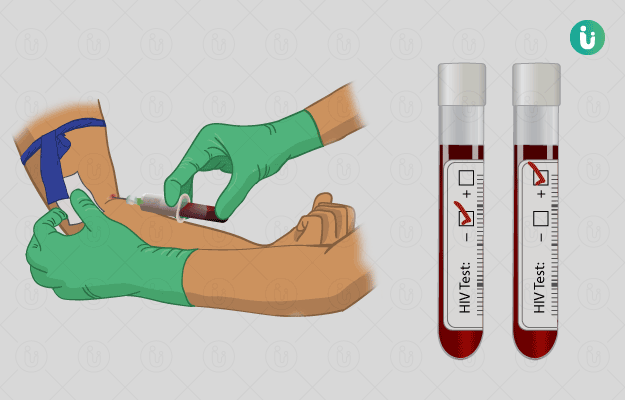What is Human Immunodeficiency Virus (HIV) test?
Human immunodeficiency virus or simply HIV is the causative organism of acquired immune deficiency syndrome (AIDS), a sexually transmitted disease that leads to suppression of the immune system, making the person prone to opportunistic pathogens.
There are two types of HIV:
- HIV-1: Present globally
- HIV-2: Predominantly found in Western Africa. Presently, HIV-2 has spread to the United States also.
About 20% of the individuals infected with this virus are unaware of it because it does not show any symptoms.
Timely diagnosis of this virus helps in initiating therapy in the early stages and preventing the spread of the virus. Therefore, routine HIV testing can help in managing this disease.
An HIV test, also known as HIV screening, HIV screening test or HIV confirmatory test, is done to detect the presence of HIV in blood, saliva or urine.
Different types of HIV tests exist, which help identify the presence or absence of HIV in the blood and other body fluids. However, many of these tests do not recognise the presence of an active infection, as it takes a long time for the body to produce enough antibodies to fight against HIV. The three main types of HIV tests include:
- Antibody test: It is performed on a blood or saliva sample to detect the presence of antibodies, a type of protein produced by the body to fight against foreign material, such as HIV, entering and attacking the body
- Combined test: It is used to detect the presence of HIV as well as the antibodies produced against HIV in blood. This test can help diagnose HIV infection much earlier than an antibody test
- The nucleic acid test: This test helps detect the presence or absence of HIV in blood and is suitable only after 7-28 days of infection






























